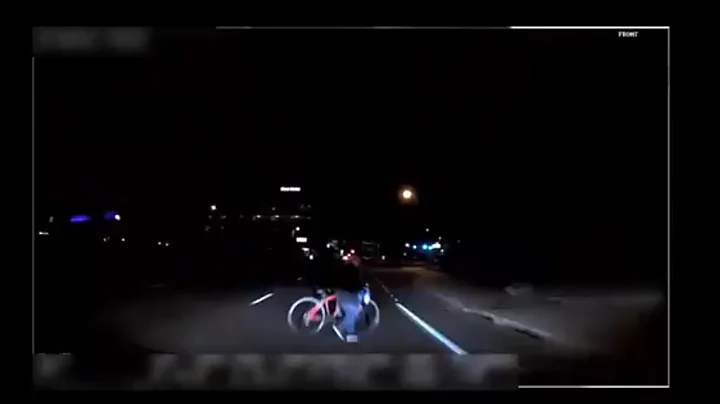Police in Arizona on 21 March released a short video of a fatal collision between an Uber self-driving vehicle and a pedestrian, as investigators probe the accident that has put new focus on the safety of autonomous vehicles.
The video, taken from inside the Volvo XC90 sport utility vehicle that Uber has used for testing, shows the vehicle driving along a dark road when an image of a woman walking a bicycle across the road suddenly appears in the headlights.
The woman, Elaine Herzberg, 49, later died from her injuries.
Police have released few details about the accident that occurred on the night of 18 March in Tempe, Arizona, a suburb of Phoenix, while the SUV was driving in autonomous mode. Uber suspended its self-driving testing in North America after the incident and federal safety regulators are conducting their own probe.
Fall-out from the accident could stall the development and testing of self-driving vehicles, which are designed to perform far better than human drivers and sharply reduce the number of motor vehicle fatalities that occur each year.
The video shows the vehicle traveling in the right-hand lane of a divided four-lane roadway. The vehicle's headlights illuminate a woman directly in front of it who is crossing the SUV's lane with her bike. The woman appears to be jaywalking as she is not in a crosswalk.
A photo released by safety regulators on 20 March showed that the impact occurred on the right side of the vehicle.
The footage also shows a view of the vehicle's interior and the driver at the wheel. The driver appears to be looking down, and not at the road, for two periods of about five seconds each. Just before the video stops, the driver looks upward toward the road and suddenly looks shocked.
The video is disturbing and heartbreaking to watch, and our thoughts continue to be with Elaine’s loved ones. Our cars remain grounded, and we’re assisting local, state and federal authorities in any way we can.Uber statement to Reuters
The video is likely to be a key part of investigations of Uber's self-driving car technology and whether it was ready for testing on public roads.
Although the exact specifics of Uber's technology are not known, self-driving cars typically use a combination of sensors, including radar and light-based Lidar, to identify objects around the vehicle, including potential obstacles coming into range. While cameras do not perform well in the dark, radar and Lidar can work at night.
One question on regulators' minds will be why the sensors did not pick up on the presence of Herzberg, who would ostensibly have already crossed three lanes of traffic before arriving in the path of the Uber vehicle.
Companies including Uber, Alphabet's Waymo and General Motors' Cruise Automation have been testing their self-driving technology in Arizona, which has welcomed the industry with a lighter regulatory touch than in states like California, for example.
(The Quint has given up the use of plastic plates and spoons. This Earth Hour, what will you #GiveUp to save the planet? Use the hashtag #GiveUp and tag @TheQuint to tell us.)
(At The Quint, we question everything. Play an active role in shaping our journalism by becoming a member today.)
